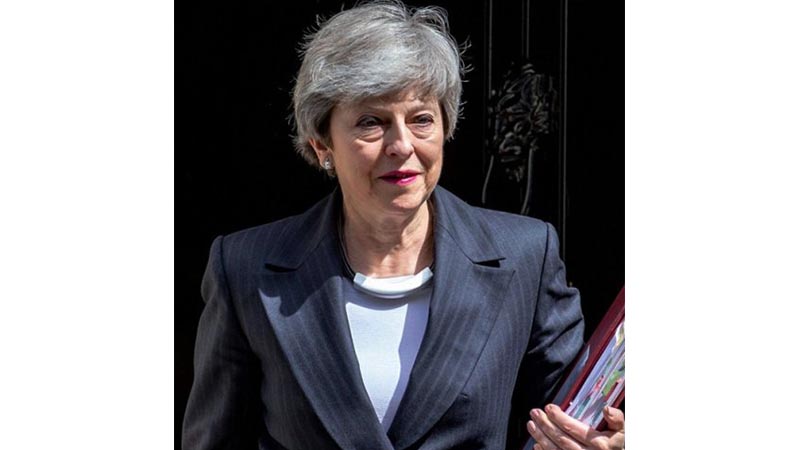UK set for new PM as May steps down

British Prime Minister Theresa May on Friday announced that she would step down as U K Conservative Party leader on June 7, sparking a contest to become the country’s next Prime Minister. In an emotional statement, she said she had done her best to deliver Brexit and it was a matter of "deep regret" that she had been unable to do so. Being prime minister had been the "honour of my life", she said.
Theresa May said she would continue to serve as PM while a Conservative leadership contest takes place. It means she will still be prime minister when US President Donald Trump makes his state visit to the UK at the start of June. May has bowed to relentless pressure from her party to quit over her failure to take the U.K. out of the European Union on schedule. Britain is currently due to leave the EU on October 31, but Parliament has yet to approve terms.
Pressure on Theresa May to quit over her failure to get Parliament’s approval for a European Union divorce deal reached a critical point this week as House of Commons Leader Andrea Leadsom quit and several Cabinet colleagues expressed doubts about her Brexit Bill. The UK PM on Thursday delayed plans to publish the EU Withdrawal Bill — her fourth attempt to secure Parliament’s backing for her Brexit blueprint.
May became Prime Minister in July 2016, and her premiership has been consumed by the so-far-unsuccessful attempt to leave the EU. May's departure will deepen the Brexit crisis as a new leader is likely to want a more decisive split, raising the chances of a confrontation with the European Union and a potentially unpredictable snap parliamentary election.
May set out a timetable for her departure - she will resign as Conservative Party leader on June 7 with a leadership contest beginning the following week.
Her voice cracking with emotion, May, who endured crises and humiliation in her failed effort to find a compromise Brexit deal that parliament could ratify, said she bore no ill will.
"I will shortly leave the job that has been the honour of my life to hold," May said. "The second female prime minister, but certainly not the last." "I do so with no ill will but with enormous and enduring gratitude to have had the opportunity to serve the country I love," May said, with her husband, Philip, looking on.
May, once a reluctant supporter of EU membership, who won the top job in the turmoil that followed the 2016 Brexit vote, steps down with her central pledges - to lead the United Kingdom out of the bloc and heal its divisions - unfulfilled.
"It is, and will always remain, a matter of deep regret to me that I have not been able to deliver Brexit," May said, adding that her successor would have to find a consensus to honour the 2016 referendum result. May bequeaths a deeply divided country and a political elite that is deadlocked over how, when or whether to leave the EU.
The leading contenders to succeed May all want a tougher divorce deal, although the EU has said it will not renegotiate the Withdrawal Treaty it sealed in November. Sterling reversed initial gains it made on May's resignation. Boris Johnson, the face of the official Brexit campaign in 2016, is the favourite to succeed May. Betting markets put a 40% implied probability on Johnson winning the top job.
Others tipped by betting markets are Dominic Raab, a Brexit supporter and former Brexit secretary, with a 14% implied probability on his chances.
Environment Secretary Michael Gove, former House of Commons leader Andrea Leadsom and Foreign Secretary Jeremy Hunt each have a 7% probability, according to betting markets.
Defence Secretary Penny Mordaunt and International Development Secretary Rory Stewart each have a 4% chance of the top job while Home Secretary (interior minister) Sajid Javid has a 3% chance.


